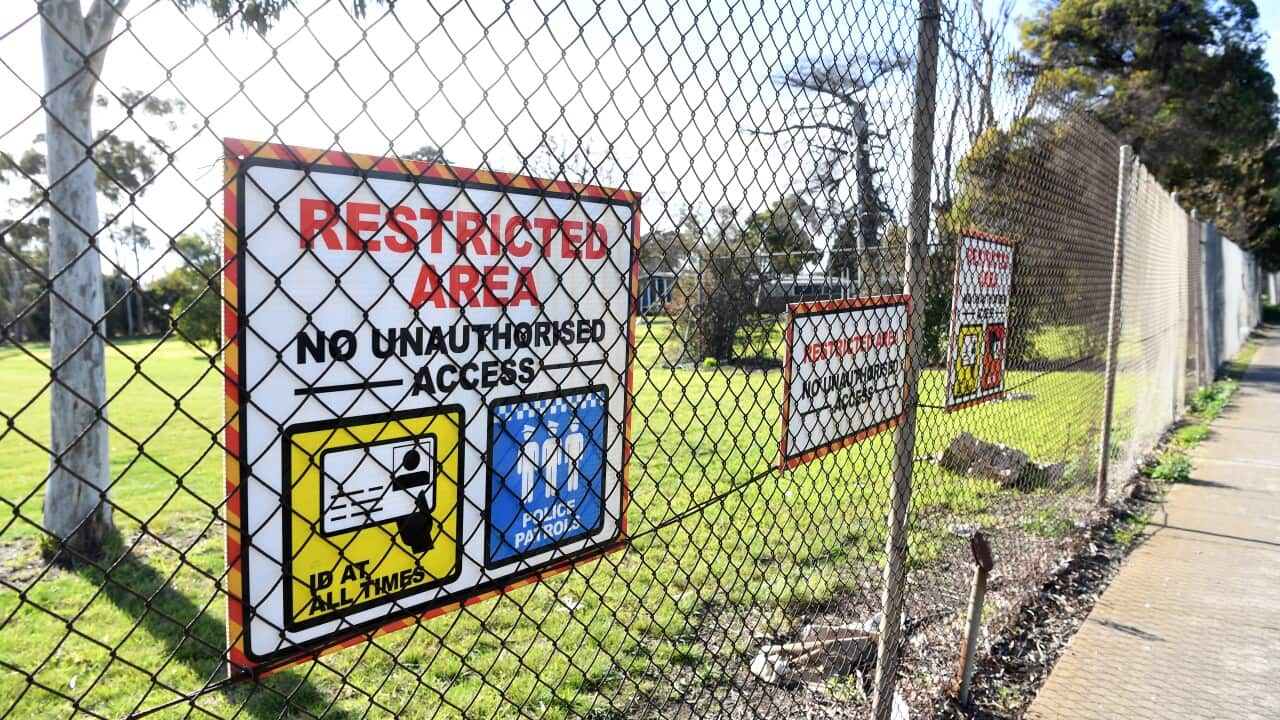Key Points
- Home Affairs said changing demographics in immigration detention centres has led to an increase in drug-related incidents and violence.
- Home Affairs Minister Tony Burke said roughly 90 per cent of detainees had criminal convictions.
- New legislation will boost the powers for centres to search for and seize “prohibited and controlled items”.
Staff at centres may get stronger search powers under new federal legislation to combat a “prison-like culture”.
Home Affairs Minister Tony Burke said changes in the centres’ demographic over recent years meant roughly 90 per cent of had criminal convictions.
Those detained include outlaw motorcycle gang members who bring a “higher degree of volatility and organised criminality into the system” including an increase in drug-related incidents and violence, Home Affairs says.
In response, Burke is introducing legislation to boost the powers for centres to search for and seize “prohibited and controlled items” without a warrant and with the use of detector dogs within centres.
The classification of items in the possession of people in centres will also be clarified.
The laws will say an item which is unlawful to possess is a ‘prohibited thing’, such as an illegal drug, while the minister can set out that an item is a ‘controlled thing’, which could include bootleg alcohol, internet capable devices and SIM cards.
There will also be safeguards for people in the centres, the minister says.
“The legislation will stipulate that detainees must retain the ability to communicate with family members and legal representation where their mobile device is seized,” Burke said on Saturday.
The policy announcement follows an Australian Human Rights Commission report in April which flagged serious concerns over safety and care at Yongah Hill Immigration Detention Centre in Northam, east of Perth.
Inspectors reported a rise in behaviours frequently associated with the prison system, including the trafficking of drugs and other contraband, standover tactics and violence.
The commission made 33 recommendations to the Department of Home Affairs aimed at improving conditions at all immigration detention centres under Australian jurisdiction.
Home Affairs accepted or partially agreed with 20 of the recommendations and disagreed with seven, with the remaining six requiring government consideration.
The inspection, held in May 2023, came six months before a landmark High Court decision which ruled indefinite immigration detention unlawful and unconstitutional.
On-shore asylum-seekers spend an average of 565 days in immigration detention — substantially more than in nations such as Canada (30 days) and the United States (48 days).
